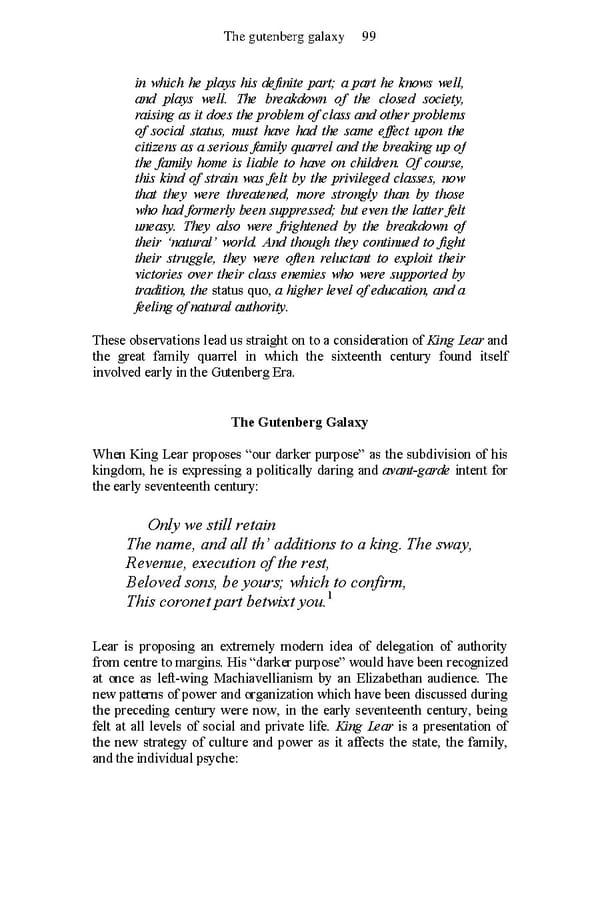The gutenberg galaxy 99 in which he plays his definite part; a part he knows well, and plays well. The breakdown of the closed society, raising as it does the problem of class and other problems of social status, must have had the same effect upon the citizens as a serious family quarrel and the breaking up of the family home is liable to have on children. Of course, this kind of strain was felt by the privileged classes, now that they were threatened, more strongly than by those who had formerly been suppressed; but even the latter felt uneasy. They also were frightened by the breakdown of their ‘natural’ world. And though they continued to fight their struggle, they were often reluctant to exploit their victories over their class enemies who were supported by tradition, the status quo, a higher level of education, and a feeling of natural authority. These observations lead us straight on to a consideration of King Lear and the great family quarrel in which the sixteenth century found itself involved early in the Gutenberg Era. The Gutenberg Galaxy When King Lear proposes “our darker purpose” as the subdivision of his kingdom, he is expressing a politically daring and avant-garde intent for the early seventeenth century: Only we still retain The name, and all th’ additions to a king. The sway, Revenue, execution of the rest, Beloved sons, be yours; which to confirm, This coronet part betwixt you.1 Lear is proposing an extremely modern idea of delegation of authority from centre to margins. His “darker purpose” would have been recognized at once as left-wing Machiavellianism by an Elizabethan audience. The new patterns of power and organization which have been discussed during the preceding century were now, in the early seventeenth century, being felt at all levels of social and private life. King Lear is a presentation of the new strategy of culture and power as it affects the state, the family, and the individual psyche:
 Essential McLuhan Page 105 Page 107
Essential McLuhan Page 105 Page 107